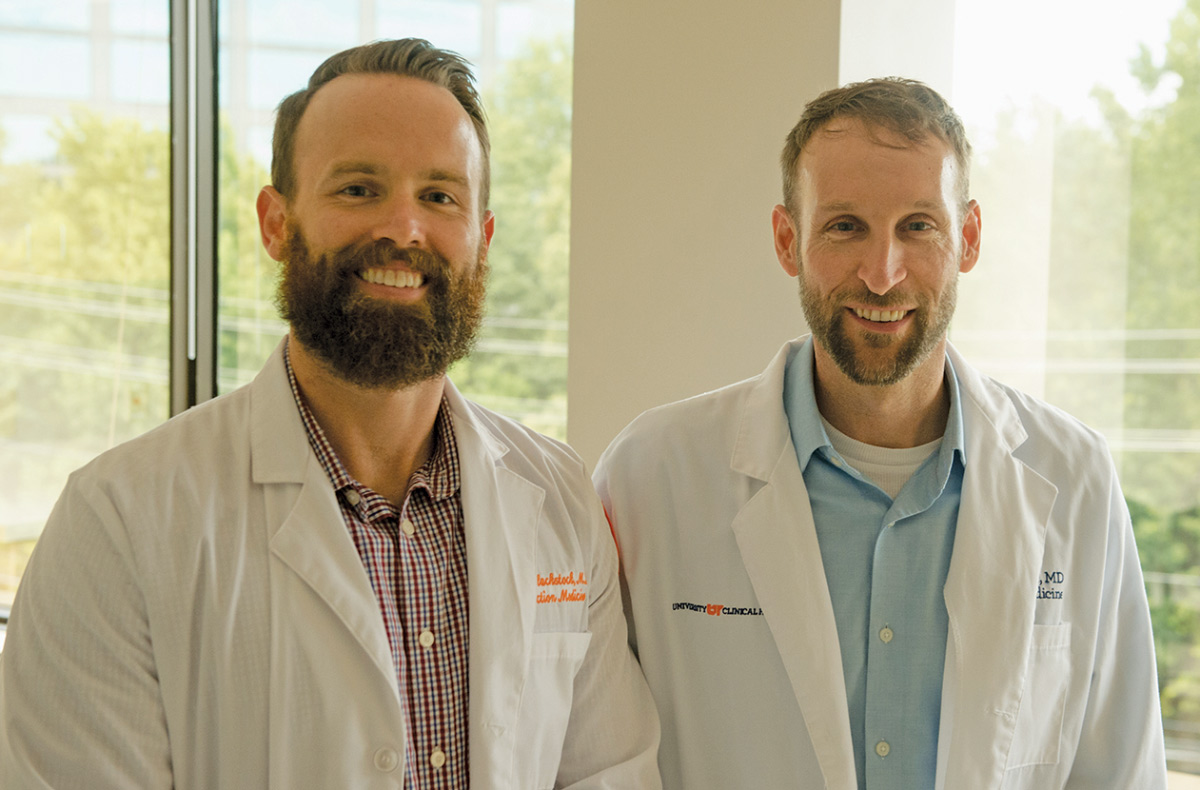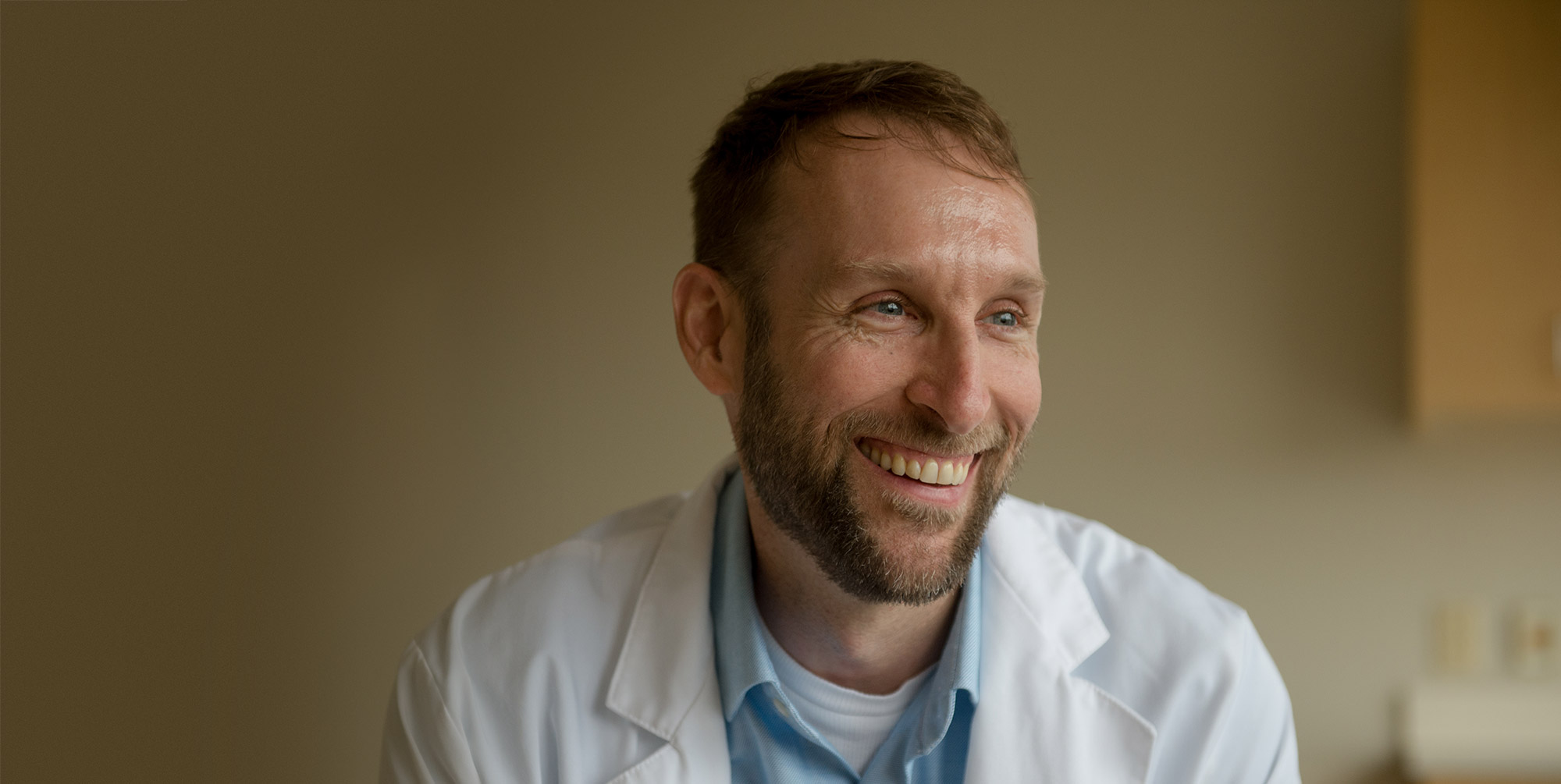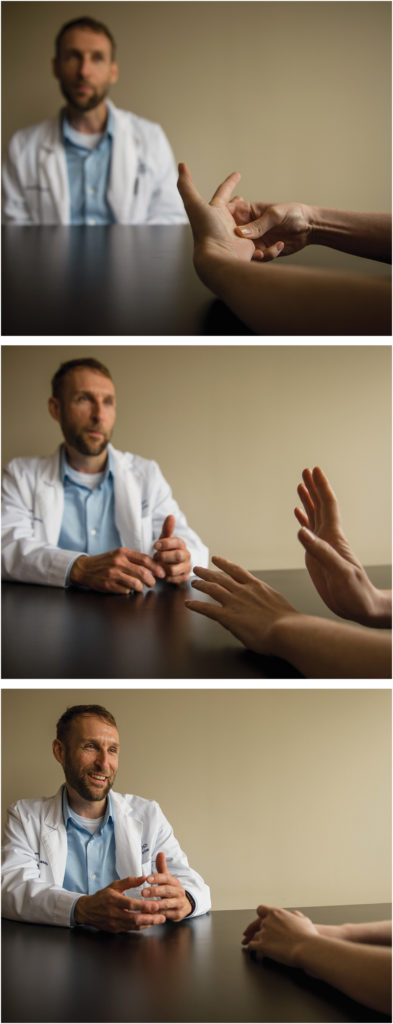By Peggy Reisser | Photos by Brandon Dill
One word seems to sum up the Center for Addiction Science at UT Health Science Center: committed. Committed to helping the addicted. Committed to researching addiction. Committed to building community with medical professionals.
In the fall of 2016, the center received a prestigious national designation for that commitment. It was named the first Center of Excellence in Addiction Medicine in the country by the Addiction Medicine Foundation for combining education, clinical care, research and community outreach in one entity.
“We recognized the unmet addiction need, and we are working to address it head on, both in our region and nationwide,” Dr. David Stern, founder and then-dean of the UTHSC College of Medicine, told an audience of city and state officials, UTHSC administrators and community supporters gathered to mark the milestone. Stern is now the vice chancellor for health affairs for statewide initiatives and the force behind UTHSC’s addiction efforts.
“We are committed to growing the fully integrated model we have defined,” Dr. Daniel Sumrok, director of the center, says.
That commitment continues, as the Memphis-based UTHSC Center for Addiction Science has treated more than 900 people caught in the grip of addiction. It also reaches across the state to grow the ranks of physicians trained to treat those addictions and conducts the research that will provide clues to the best ways to prevent and extinguish the problem.
“It’s a work in progress,” Dr. Shawn Hamm, program director for the center, says. “It’s very exciting.”

Formerly in offices near the UTHSC campus in the Memphis Medical District, the center moved in November 2017 to larger, brighter offices in East Memphis. The new space is more centrally located for the region with easy interstate access and offers room to expand. It also is more inviting for those already struggling with the darkness of addiction, Hamm says. The clinical portion of the center is managed by University Clinical Health, a physician practice affiliatedwith UTHSC.
There are six exam and patient rooms, a room for group counseling, a physician workroom, a lab and a conference room that will be the hub of an innovative long-distance effort to help physicians in rural areas across Tennessee better treat addiction.
In late summer, the center began using the Project ECHO model, started by the University of New Mexico, to spread addiction medicine expertise across the state by serving as a hub or virtual clinic providing addiction medicine training and treatment advice via teleconference to physicians wherever they practice.
“It’s not about me being the specialist; it’s really more of empowering the other physicians who are treating patients so they learn how to do it themselves,” Hamm says.
It’s a major step toward the hub-and-spoke method of treatment delivery that Stern espouses—UTHSC as the hub of expertise reaching out across the state to build the ranks of physicians treating addiction.
UTHSC established its leadership in addiction medicine education early by starting the first Addiction Medicine Fellowship program in the state a few years ago. Hamm was its first graduate. So far, four have graduated from the program, and two more have begun the process.
The center provides medication-assisted treatment combined with behavioral therapies to treat the disorder, addresses issues that contributed to it and ignites the behavioral changes necessary to move forward. It is expanding its treatment capacity, thanks to funds from the state and county, by adding a licensed clinical social worker, case managers and nurse coordinators.
It also is partnering with existing entities in the county and state—the police department, EMS services, residential treatment facilities, insurers and workforce development programs—to move patients from treatment to lasting solutions.
“The center treats patients who misuse various substances, including opioids, benzodiazepines and alcohol,” Hamm says. “We’re focusing a lot on opioids.”
The atmosphere at the center is unique, according to one patient who has been under its care since it opened. “I think the biggest difference is the doctors actually listen to you,” says the young woman, who was addicted to opioids. “Usually when you go see a doctor, it’s like in and out, but they have time to address any issues I have or any concerns, even if I just need a minute to talk to them and just have an outlet for any stress or anxiety, which is very helpful.”
She says her addiction problem spiraled out of control in her teens before she realized what was happening, but medication-assisted treatment and therapy have helped her stay sober. “I just feel very understood here, even though I know they haven’t experienced what I have,” she says. “They’re very empathetic in how they deal with me. I know they are the same way with a lot of other patients.”
The center sees all comers; however, there is a particular emphasis on reaching vulnerable populations, says Stern, who is working with the Shelby County Health Department to build an addiction network for the county.
There also is significant research to ensure long-term impact.
“We have a number of studies going on and several with initial results,” says Karen Derefinko, assistant professor in the UTHSC Department of Preventive Medicine and director of the National Research Center of the Addiction Medicine Foundation, which partners closely with UTHSC’s work. “We are doing opioid use disorder treatment with rural populations, prevention work with folks receiving opioids after dental surgery and objective detection of opioid self-administration using wearable technology.”
Other researchers across campus are looking at the effect of alcohol and drugs on the body down to the cellular level, as well as issues related to neonatal abstinence syndrome.
The UTHSC Center for Addiction Science has become recognized for bringing together partners across the city, state and region to talk about best practices and share efforts.
Stephanie McCladdie, regional administrator of the national Substance Abuse and Mental Health Services Administration, was at UTHSC earlier this year for a meeting that included health-care leaders from across the Southeast discussing ways to strengthen the addiction workforce.
“We recognize the great work you are doing at the University of Tennessee Health Science Center, and we look forward to working with everyone at the table,” she said.




